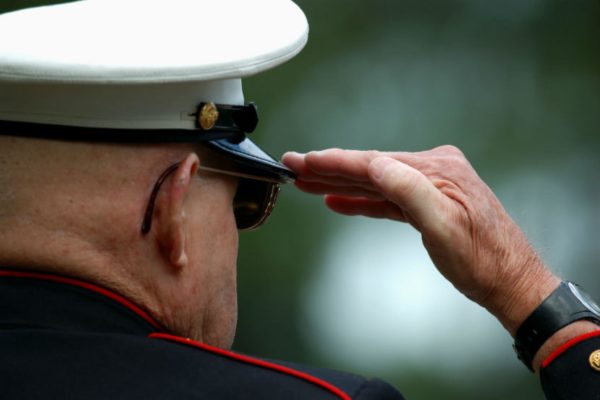“I’ve never seen one history book that tells how anybody feels.” Bob Dylan said these words in 1963. This Veterans Day, we are not involved in a major war for the first time in nearly 20 years. We should give thanks. But we should also take care to internalize what veterans who live and work among us have gone through and continue to go through.
It’s unfortunate that we have not done what Iraq War veteran Phil Klay urged us to do seven years ago – to use our experiences of suffering to feel what service members have gone through. All of us have suffered in our own lives. Our trauma pools may not be as deep or wide as those of veterans who have experienced the pain of soldiers and civilians harmed or killed in war.
But, as Klay emphasizes, we can imagine and extrapolate from our own suffering to get a sense of what veterans endured. If we take in what veterans are saying and how they say it, we can develop empathy through our common humanity. To deny that we can understand what they went through is to insulate ourselves selfishly from their suffering.
Selfishness is one motive, even if subconscious, for our all-volunteer armed forces. Retired career U.S. Army officers Andrew Bacevich and Dennis Laich have argued separately that our all-volunteer military makes citizens less likely to oppose the kinds of long and unwinnable wars we keep fighting. Our loved ones are safe. We “have no skin in the game.” Yet no less an authority than Henry Kissinger reminds us that “we’ve been involved in five wars since World War II, which we in effect have lost,” and at great human cost.
Our Veterans Day wish is that many Americans together with their friends and families read, watch and listen to poems, books and movies about veterans and listen to their stories. Really feel what you are taking in and speak honestly about your feelings. Pretend the soldiers speaking to you in print and on film are there in the room with you. But relax. They aren’t.
Most young Americans today have no memories about going to war. With good luck, they never will. But they also have not explored the ironic truths and honest questions in poems about combat written by those who have experienced war trauma firsthand.
Such writings as: Walt Whitman, “I Saw the Vision of Armies”; Ernest Hemingway, “To Good Guys Dead”; Rolando Hinojosa, “Korean Love Songs”; Yusef Komunyakaa, “Facing It”; W.D. Ehrhart, “Thank You for Your Service”; Brian Turner, “Here, Bullet.” They don’t read in high school such books as “Catch-22” (1961), “Bloods” (1984), or “My War, My Art” (2019). They don’t watch you-are-there documentaries such as “Tattooed Under Fire” (2008) or “Where Soldiers Come From” (2011).
Start with the poems. Their messages come from the hearts and souls of veterans. Like photographs, poems reveal and conceal truths. Ask questions. Why are Hemingway and Ehrhart so angry about wars fought 50 years apart? Why is Hinojosa so matter-of-fact? What does Komunyakaa really see in the Vietnam Memorial Wall? How would I feel? What do I know about veterans whom I thank for their service? Don’t expect easy answers.
The first stanza in Bruce Springsteen’s brutally honest song “Born in the USA” about our national neglect and mistreatment of Vietnam veterans proclaims: “You end up like a dog that’s been beat too much / till you spend half your life covering up.” Listen closely now to the rest of the lyrics and other songs about soldiers’ experiences such as “Brothers Under the Bridge” (1995) and “Devils and Dust” (2005). The Boss uses his imagination. His songs invite us down the path Phil Klay wants us to take. We can stop being emotional ostriches when it comes to the lives of veterans and the wars they fought.
Feeling is crucial on Veterans Day. For veterans, every day they live is Veterans Day.
Tom Palaima is the Robert M. Armstrong Centennial Professor of Classics at The University of Texas at Austin.
Al Martinich is the Roy Allison Vaughan Centennial Professor Emeritus of Philosophy at The University of Texas at Austin.
A version of this op-ed appeared in USA Today, Houston Chronicle, Austin American-Statesman, San Antonio Express News, Lubbock Avalanche Journal, Amarillo Globe News, and the Waco Tribune Herald.




